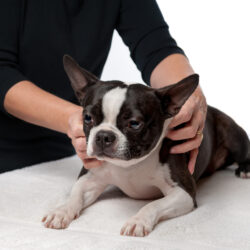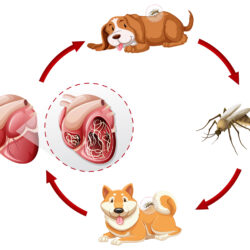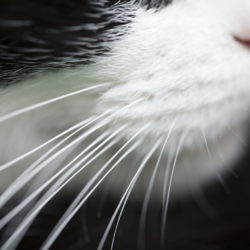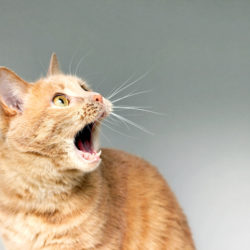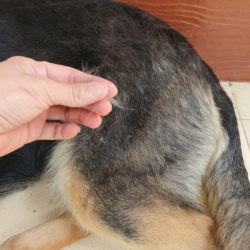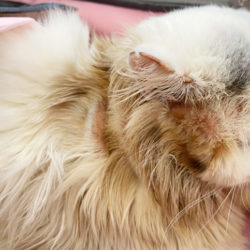Dog chiropractic is a form of alternative medicine that involves the manual adjustment of the spine and joints to help improve the overall health and well-being of dogs. It is a natural and safe way to help alleviate pain and discomfort caused by musculoskeletal issues, such as joint stiffness, muscle soreness, and spinal misalignments. We will go over what dog chiropractic is, how it functions, and how it may help your pet in this article. What is Dog Chiropractic? Dog chiropractic is a form of complementary medical practice that concentrates on the musculoskeletal system of dogs. To restore appropriate alignment
Read More
Heartworm in Dogs: Symptoms and What to Watch For
Heartworm in Dogs: Symptoms and What to Watch For Heartworm in dogs is a potentially life threatening condition that is becoming increasingly widespread. Luckily, there are ways for dog owners to prevent this parasitic infection in both their cats and dogs. However, it is still a good idea for dog owners to be generally aware of the symptoms of heartworm disease in dogs. Early signs of heartworm infections in dogs are often difficult for dog owners to spot, and it mainly just consists of a cough. As the heartworm infection progresses, the symptoms become more severe. Signs of a severe
Read More
How Long Is Dog Pregnancy? Dog Pregnancy Stages
How Long Is Dog Pregnancy? Dog Pregnancy Stages Are you thinking of breeding your dog, or has your dog recently become pregnant? It is important to consider all factors of dog breeding before making this major decision, and one of these factors is the overall length of your dog’s pregnancy. In this article, you’ll find information to help you better understand the stages of canine pregnancy. While this guide can help you get started, you should work closely with your vet throughout your dog’s pregnancy and the first few weeks of her puppies’ lives too. This way, you can ensure
Read More
Do Cats’ Whiskers Grow Back?
A cat’s whiskers not only make them appear super cute but also serve many different purposes. A cat’s whiskers help them with their navigation through their environment. Whiskers are the most essential sensory organs for your feline friend. Just like human hair, a cat’s whiskers will grow back as long as the follicle is not injured. If a cat’s whiskers fall out, it takes them about two weeks to grow again. It is perfectly natural for a cat’s whiskers to fall out if it is not too many of them. If you want to be aware of all there
Read More
Is My Dog Stressed? Body Language of a Stressed Dog
When dogs get stressed, they often demonstrate body language that is telling of their anxiety. Several things can trigger your pup’s stress. Your dog may show you their stress by flattening their ears. They may also exhibit the whites of their eyes, often called “whale eyes.” Excessive barking, whimpering, or whining may also occur in a stressed or nervous pup. Another common sign that a dog is stressed is they may have a low tail or tuck their tail between their legs. If you want to know more about whether your dog is stressed and their body language, check out
Read More
Leptospirosis in Dogs: What is it and How to Treat it?
Leptospirosis is a dangerous illness that dogs may contract in a variety of ways. It can affect the pup’s liver, kidneys, or other organs. Leptospirosis is a zoonotic infection that can affect both animals and people. Researchers previously thought that leptospirosis was transmitted mostly in rural areas such as ponds, marshes, and forests. However, veterinarians have seen a recent increase in cases in both suburban and urban areas. The treatment for leptospirosis in canines is antibiotics and supportive care. Treatment varies based on what organs are affected. If you want to know what leptospirosis is in dogs and how to
Read More
Cat Yowling: What is It and Why They Do It?
Cats use meowing and yowling to communicate with us and the environment around them. A cat’s yowling sound is a long, low-pitched moan that comes from a cat’s throat. The sound is typically very loud and drawn out. Why exactly do cats yowl? Cats may yowl because they are hungry, bored, or they want attention. Furthermore, cats use yowling as a mating call. Finally, cat yowling may be a sign of pain, cognitive dysfunction, or behavior issues. Why Do Cats Yowl? Read on below to learn more about the different reasons why cats yowl. Your Cat Yowls Because They Are
Read More
The 5 Most Common Causes of Bald Spots on Dogs
As a pet owner, you know the struggle of trying to keep your pup looking good and healthy. But what do you do when they start to lose patches of fur? It can be hard to tell what’s going on with them if it’s not just shedding season. If your dog has bald spots that don’t seem related to the time of year or their breed, there may be underlying health concerns to consider. This article will explore the 5 most common causes of bald spots on dogs along with the signs and symptoms to watch for. Fortunately, there are
Read More
5 Reasons Why Your Cat is Losing Hair
Have you recently started noticing patches of hair loss in your cat? Most of the time, it is nothing to be concerned about, but it is still recommended to take your feline friend to a vet for a general health checkup. Reasons your cat may be losing hair could be a poor diet, allergies, fleas and ticks, stress, or even hypothyroidism. 5 Causes of Hair Loss Hair loss in cats is normal. Usually, the causes are simple, and the hair loss resolves on its own or with a few small lifestyle changes. However, you should still monitor your cat for
Read More
Top 10 Cat Emergencies
Cats often become reclusive and hide when they are not feeling well, which makes knowing when they need to be seen by your veterinarian a challenge. They have unique signs of emergency conditions that often go unrecognized by owners. Some injuries are obvious, such as a cat with an open wound, while others have more subtle signs that can be equally dangerous if left untreated. Knowing signs of illness is crucial in determining when to seek emergency care for your cat. Below is a list of some of the most common cat emergencies and their signs. Urethral Obstruction This
Read More


